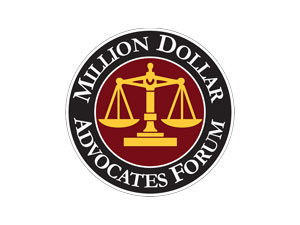$5.5M
$5.1M
$4.2M
$2.9M
$2.8M
$2.5M
$2.4M
$2.2M
Nursing Home Negligence in the Time of COVID-19
In any time, elder abuse and nursing home neglect is a serious problem; in our current moment, during this unprecedented pandemic of COVID-19, which disproportionately affects the elderly and infirm at nursing facilities and assisted living facilities, nursing home negligence can be even more harmful to your loved ones — compromising their health and putting their lives at risk.
Nursing home neglect — essentially the lack of proper care — is the most common type of abuse against residents, and it amounts to negligence similar to medical malpractice. In the midst of the coronavirus pandemic, this can take new forms. In this article, we explore some of the general signs and symptoms of neglect, while taking note of these new, more pertinent issues related to COVID testing, precautions, and preparation.
Nursing Homes and COVID-19
No other industry has been hit as hard by the coronavirus as the nursing home industry. According to the New York Times, over 40% of U.S. coronavirus deaths are linked to nursing homes. According to McKnight’s Long-Term Care News, over 80% of all COVID-19 deaths in Canada arose in long-term care facilities. Given the high risk to patients and healthcare workers, it stands to reason that the standards for COVID testing and prevention need to be higher and more stringent for nursing homes than for other organizations.
The Center for Disease and Control and Prevention has outlined these guidelines for health professionals:
- Adequate staffing – In addition to having fully trained staff, with no shortages, facilities should assign at least one person with Infection Prevention and Control (IPC) training
- Access to adequate testing – all residents must receive baseline tests and weekly testing thereafter
- Staff testing
- Residents and visitors must wear personal protective equipment (PPE), and access to said PPE must also be adequate
- Local hospital capacity
Who is responsible if your loved one in a nursing home or long term care facility tests positive for COVID-19?
Nursing homes. They have a responsibility to monitor the spread of any infectious disease.
Common Nursing Home Negligence Cases
Most negligence cases involving nursing homes, rehab facilities or assisted living facilities (“ALFs”) include the following:
- Bed or pressure sores – Also known as decubitus ulcers, these wounds, found on the skin and underlying tissue, are caused by prolonged pressure. They commonly occur on the tailbone, where patients who are bedridden and not moved often enough can place most of their body weight. Bed sores can also develop on the heels and ankles, and other bony areas that press against the skin internally.
- Unexplained Injuries – A sure sign of neglect is the presence of an unexplained injury, such as bruises, cuts, or broken bones. If no one is able to explain the presence of an obvious injury, it is probably due to negligence or abuse.
- Incorrect or Inadequate Assessments – Often the medical care at nursing homes is sub-standard and staffing insufficient, which can lead to misdiagnoses of injuries and poor care plans. For example, the CDC has created a wound classification system from 1-4 to determine those patients at risk of infection and possible amputation; if the wrong classification was assigned to a wound, a patient may needlessly suffer.
- Emotional & Psychological Issues – Neglect and abuse can often leave nursing home residents withdrawn, depressed, or suicidal. Signs of psychological abuse may include patients acting fearful, or distant, with family members.
While these are among the most common examples, there are multiple forms of negligence that may give rise to personal injury or wrongful death in nursing homes and ALFs.
How long does a person have to file a nursing home abuse or neglect case?
The statute of limitations in Florida for filing a nursing home negligence case is generally, with some exceptions, two years from the date the evidence of negligence is discovered or should have been discovered.
Nursing Home Malpractice
The first necessary step in determining nursing home malpractice is to acquire a qualified nursing home negligence attorney with experience in nursing home neglect cases.
Why file a nursing home abuse lawsuit?
In order to avoid future harm and seek monetary compensation for the violence the victim has already suffered, nursing home litigation will usually be commenced.
In addition to suffering from neglect at nursing homes, residents are often subject to injuries caused by fall accidents, intentional violence and illness. Filing a lawsuit will allow victims or their families the opportunity to receive financial compensation and, in some cases to recover punitive damages.
Reasons for filing a complaint related to nursing home neglect include:
- Preventing future abuses from negligent nursing homes
- Medical bills
- Pain and suffering compensation
- Paying for treatment for mental wellbeing
- Paying for expenses related to changing nursing homes or caregivers
What needs to be proven to claim monetary damages in a case against a nursing home?
There must be proof that the nursing home caused the resident to suffer an injury or other harm in order for the court to award damages. Sometimes, the easiest way to prove that is by a thorough review of the nursing home chart and subsequent hospital records. Injuries result in medical attention, which leaves a trail of medical reports containing a detailed history of the injury and its cause..
In all cases where a nursing home resident suffers an injury, a summary of an injury occurrence should be completed by both the nursing home staff and the resident. Completed at the time of the incident, this record may be a valuable resource for proving liability and damages later in court. Unfortunately, nursing home staff don’t always generate a report.
Incident reports of injury in cases involving assault are extremely rare. Evidence of violence can be harder to track and usually requires an expert witness although, in some extreme cases the police become involved. The facts needed to support a claim for damages arising from abuse may be difficult to find. That is just another reason to secure the help of an experienced nursing home negligence attorney. They know where to look for the proof.
Regardless of the nature of the incident, it is important to document the scene and injuries as thoroughly as possible. Later, the documents, such as grievances and photographs, can be helpful if you need to pursue criminal charges or a civil lawsuit against the nursing home.
What is a grievance in a nursing home?
A grievance is a formal complaint voiced by a resident or a resident’s family. In 2016, the Centers for Medicare & Medicaid Services (CMS) updated federal nursing home restrictions. Any nursing home that accepts Medicare/Medicaid funding is required to comply with federal regulations, in addition to apart applicable state regulations. Nursing homes must furnish proof that it accepted a grievance, and that they are working actively toward resolution, and that the patient is kept aware of any progress.
“How do I find the best attorney near me for a nursing home abuse lawsuit?”
In Florida, the laws regulating nursing homes, accredited nursing and recovery facilities, and ALFs contain unique criteria that must be met before a case can be brought. These provisions are similar to those contained in Florida’s medical malpractice statute, although there are important differences.
Speak to a trial lawyer with experience litigating nursing home cases if your family member or loved one has been the victim of nursing home negligence, neglect, or abuse.
Our experienced nursing home negligence lawyers work hard to hold negligent nursing homes, ALFs, and rehab facilities accountable for the harm they cause and get your family the compensation you deserve.
If you believe that a loved one has suffered harm as a result of nursing home negligence or abuse, contact us today for a free and confidential evaluation of your case.















